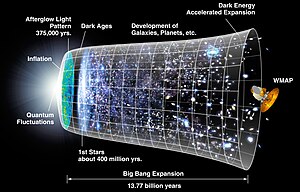The God-Talk Club: Naturalism and Miracles
“Hey guys, I have this quote from Albert Mohler about evolution,” said Bob.
“So let’s hear it,” said Mac.
Bob quoted:
As I have stated repeatedly, I accept without hesitation the fact that the world indeed looks old. Armed with naturalistic assumptions, I would almost assuredly come to the same conclusions as BioLogos and the evolutionary establishment, or I would at least find evolutionary arguments credible. But the most basic issue is, and has always been, that of worldview and basic presuppositions. The entire intellectual enterprise of evolution is based on naturalistic assumptions, and I do not share those presuppositions. Indeed, the entire enterprise of Christianity is based on supernaturalistic, rather than merely naturalistic, assumptions. There is absolutely no reason that a Christian theologian should accept the uniformitarian assumptions of evolution. In fact, given a plain reading of Scripture, there is every reason that Christians should reject a uniformitarian presupposition. The Bible itself offers a very different understanding of natural phenomena, with explanations that should be compelling to believers. In sum, there is every reason for Christians to view the appearance of the cosmos as graphic evidence of the ravages of sin and the catastrophic nature of God’s judgment upon sin. (Quote of the Day on Jesus Needs New PR – while this story is fiction, the quote is real, as is, of course, Dr. Albert Mohler!)
“It seems pretty unremarkable to me,” said Jerry.
“It sounds to me like he’s saying God lied and we can’t really do science,” said Mark.
“How is that?” asked Jerry.
“If God makes the universe appear old, but it isn’t, what’s the purpose? It seems deceptive.”
“Maybe he’s testing our faith,” said Justine.
“Testing your faith?” asked Bob, puzzled.
“Yes. He’s trying to see if we’ll believe him or not.”
“But Justine,” said Mark, “it seems that he’s asking us whether we believe him or our senses.”
“I’d say it’s more like a test as to whether you believe an ancient book written by primitive people, or the best evidence of your own senses,” put in Mac.
“It seems to me,” said Jerry slowly, “that we’re making an assumption here. Why would God need to make the physical universe at any particular time in its history? Why is the default position that it should look its actual age?”
“Why not make the universe look just the age it is?” asked Mark.
This is a work of fiction. All persons and events, with the exception of the reference to and quote from Dr. Albert Mohler, are products of my imagination.
The story is part of the God-Talk Club Series.
Copyright © 2011, Henry E. Neufeld
“Well, lets say God created more people than just humans here on earth. Let’s say he also creates an intelligent race on a planet that orbits a sun a couple of billion light years from here. If he made the universe look like it was just 6,000 years old, the distance would have to be very small. So I would think the universe needs to have the appearance of age in order to accommodate the space for all of God’s creation.”
“But how would that work with oil and coal? Those imply that there was death, whereas in your scenario, God wouldn’t have created life that early. Yet he plants the remains of life under the soil so we’ll see evidence that there was life way back then.”
“Well, he had to provide oil somehow,” said Jerry. “Why do you choose one method over another?”
“I don’t suppose we could be wrong about what formed the oil, could we?” said Justine, cutting Jerry off.
“I was about to say,” Jerry continued, “that an alternative explanation there was that geological formations were created by the flood, so, as Justine says, oil might have been produced in a different way than modern scientists believe.”
Bob was shaking his head. “This is just amazing. All of science is swept aside because your book must be true! Unbelievable!”
“I bet Mandy doesn’t have any problems with it at all. Do you, Mandy?” said Mac.
“No, I don’t. I have no problem with God using evolution to create and diversity life.”
“Well, technically, evolution isn’t the process that creates life. That’s abiogenesis,” said Mac.
“On the contrary,” said Bob, “while the processes may be somewhat different, some of the same principles of variation plus selection may well apply. We just don’t know precisely–or even generally–how it works.”
“Yet you believe it happened,” said Jerry, looking puzzled. “Why is that?”
“It seems pretty clear to me,” said Bob. “There’s life. It must have gotten here somehow. We have a number of excellent leads, so it’s not unreasonable to suppose one or another will work out.”
“That seems to me to be a rather incredible statement of faith.”
“I suppose you drive a car,” Bob responded.
“Yes, I do. But don’t try comparing the way a car works to theories of abiogenesis.”
“No, that isn’t my point. Is it faith that makes you believe your car will run?”
“No, I know how the car works, and it has worked before.”
“Precisely! I know how science works. In one area after another ignorance has been displaced by leads and ideas, and then finally to explanations. I believe it will work this way too. You call that faith. I call it learning from experience.”
“But you still trust science. Scientists have been wrong so many times. Why do you think you have it right now?” This came from Justine.
“Oh, I have no doubt that,” said Bob. “I’m wrong about many things. What I do know is that science has successfully solved problems and come up with new information. And many of those ‘wrong’ answers were quite workable in their context. Newtonian physics handles quite a lot of problems even if we do know its limitations now.”
“I want to get back to an earlier point,” said Jerry. “I still maintain that Bob’s statement is a statement of faith. He believes in science. He believes it can solve everything. I can solve many problems on my calculator, but no matter how many I solve, it doesn’t mean I can solve everything. Science can solve many puzzles, but that doesn’t mean it can solve everything.”
“But the problems you can’t solve with your calculator are of a different nature than the ones you can,” said Bob. “I think the origin of life is a similar problem to the ones we have already solved. I see no reason why it cannot be solved as well.”
“To me the creation of life is a very different problem from birth even of new species,” said Jerry. “But I also want to go back to an earlier point that Mark made. Mark, why would you say that Dr. Mohler’s statement makes science impossible. Certainly many people who believe as he does do carry out scientific research.”
“One consistent thing about people is that they are inconsistent,” said Mandy.
“Let Mark answer,” said Jerry.
“If God lied in one area–the appearance of age–then how can we trust anything else. He could have set up the evidence to mislead us intentionally.” Mark looked thoughtful and troubled.
“I don’t see how God is lying,” said Jerry. “We’re misinterpreting the data.”
“But it seems to me that God is intentionally making us misinterpret the data. God could quite easily create the universe 12 or 13 million years ago and then create life now. Then it would be what it appeared to be. I just don’t like the idea that God is making it impossible for us to use our senses.”
“But Dr. Mohler argues that some of this is the result of sin,” said Justine. “The universe is messed up because of sin. That’s why we can’t interpret it correctly.”
“Or even more,” Bob added, “because we’re sinful we can’t interpret the data correctly.”
“But what does sin have to do with the appearance of age?” asked Mandy.
“The flood is certainly a result of sin according to the Bible,” said Jerry. “If it produced the appearance of age in the rocks, that appearance would be a result of sin.”
“Well, scientifically, the idea that a worldwide flood created the oilfields and coal deposits is quite ludicrous,” said Bob.
“You’re sure that’s not something that will be revised,” said Justine.
“In general, revisions of scientific theories don’t involve completely invalidating well established laws,” said Bob. “They usually result in adjusting or refining. No, I don’t find it likely that science will be revised sufficiently to allow a worldwide flood to explain geological features such as oil fields.”
There was a pause. “What I don’t understand, Mandy,” Bob continued, “is how you can stomach being associated with someone like Dr. Mohler, when you know what he’s said is nonsense.”
“I have the same problem,” said Mark.
“I don’t think what he said is nonsense. I disagree. I’m not embarrassed to call him a brother in Christ. That may not mean that much to you, Bob, but I think Jerry and Justine can understand what I’m saying. I don’t agree with his comment about naturalistic assumptions, because I believe in God, I think as much as he does. But I can disagree, even vehemently disagree, without despising.”
“I guess we’ll have to discuss ‘naturalistic assumptions’ some other time,” said Jerry. “I don’t see how you get away from them.”
“I have no problem with science sticking with naturalistic assumptions. If they didn’t, what would theologians have to do?” Mandy was grinning.
But it was time for the group to part for the evening.
Related articles
- Al Mohler On Why He Doesn’t Believe Facts (unreasonablefaith.com)
- FYI – Mohler takes on ‘theistic evolution’. (jwitness.wordpress.com)
- On scientism: BioLogos’s big meeting, in which Francis Collins embarrasses himself and the NIH – Jerry Coyne – Why Evolution Is True (richarddawkins.net)
- Karl Giberson, Ph.D: The Precarious Middle Ground In The Struggle Between Religion and Science (huffingtonpost.com)
Discover more from The Jevlir Caravansary
Subscribe to get the latest posts sent to your email.



